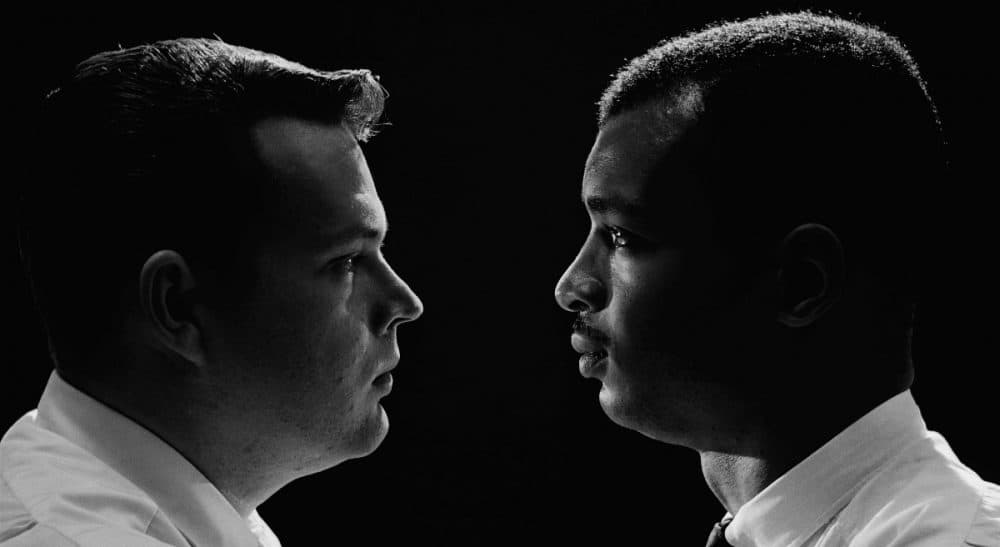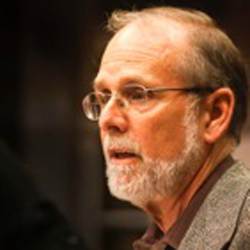Advertisement
The Difference Between Being White And Non-White In The United States

On the way to the bakery, I passed two police cars parked by the curb, and I glanced at the officers. They didn't glance back. How few changes of the parameters of my being would it take to attract their notice? If I were 20, 30, 40, 50 years younger, would they have turned their heads? If my arms were covered with tattoos? If my gender were different?
If my skin color were a few shades darker?
Certainly if I were 50 years younger and my skin darker, I would have taken those police officers in very differently, far more warily. I would have registered as carefully as possible their own skin colors, their postures, their gestures, their business on the street. It would matter to me, it might even be a case of survival, even though I might still be just a person on the way to the bakery in a shady Boston suburb.
This is the difference between being white and non-white in the United States, and few white people take the trouble to think of it, although it is now coming to our consciousness in most painful ways.
We wear the protective bubble of our privilege like a second skin...
We wear the protective bubble of our privilege like a second skin, and this shimmering, steely bubble is something that all those other people with darker skins are weary of trying to get us to understand. It's at the root of so-called "racial" differences in perceptions of events in the news; and, more important, it's simply a factor of daily life in Ferguson, in Florida, in Forest Hills.
Some years ago, because of previous civil-rights work in the Deep South, I was invited to talk to a lily-white high school class on "Diversity Day." My assignment was to tell those students what it was like to live as a minority white person in a majority community of color.
"So. How does it feel to live as a minority white person in a majority community of color?" I began. And, I confess, I did I know what to expect in answer. It was just an opening gambit.
Silence.
Except for two boys in the back, one puzzled and one a smart alec.
The puzzled one said, "But we don't live in a majority non-white community."
And the smart alec said, "It feels great!"
Bingo.
They both got it exactly right. This planet we live on is not, for the most part, peopled by men and women who look like me. We white folks start by defining out of our community anyone who doesn't fit comfortably. We narrow our peripheral vision and forget they exist and live lives different from ours; or, occasionally, we redefine a few of them as white. Hence the old joke: "— Tonto, it looks like we're in real trouble now!" " — What you mean we, paleface?" We circle our wagons and get so used to calling that circle of wagons the world that we're surprised when other people start whooping and hollering outside it, whether or not they're asking to come on in.
In exercises to define ourselves, very few palefaces name our skin color as a primary characteristic. People of color almost always begin with an acknowledgment of their "race," not because they want to, but because they have to. The rest of us assume "whiteness" is the norm for the world. It is — for the world we choose to see.
The easy part, once we do choose to see differently, is to acknowledge that. All it takes is perception and sensitivity, qualities inherent in most of humanity. And it does not require breast-beating or guilt, simply a nod of recognition. And perhaps an admission how artificial a construct it is.
The hard part is to admit how great it feels. But wouldn't we want everyone to be able to feel great like that?
A few months ago, a 20-something friend of our family got into a nasty altercation with a policeman on Boston Common late at night, was slapped with a 20 hour community service sentence and a requirement to write a letter of apology, and has laughingly dined out on the incident ever since.
Guess what color he is?
And it does not require breast-beating or guilt, simply a nod of recognition. And perhaps an admission how artificial a construct it is.
And it's not just color. Just the other night, walking home from the T, I noticed a young woman ahead of me hear my advancing footsteps. She looked around, stiffened reflexively.
When she noticed how old and harmless I appeared, she visibly relaxed.
As I passed her, I thought about Susan Brownmiller's controversial thesis in “Against Our Will: Men, Women and Rape” that all men benefit from the sexual aggression of a few. I didn't have to do anything of my own to feel a surge of power in that stranger's momentary apprehension. If I relished power more, I could have enjoyed a cheap thrill, and still gone on my own innocent way.
And so I do, because I'm white, male, and not disadvantaged in any number of ways. How about you?
